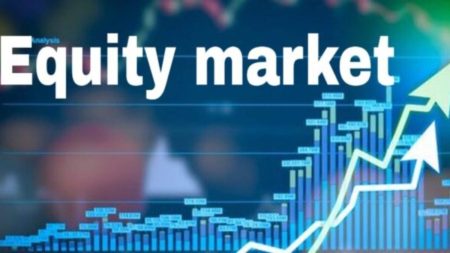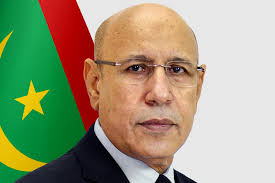
Chijioke K. Mama
01 July 2015, Sweetcrude, Lagos – This summative data looks at some relevant issues that may be associated with a divestments initiative in Nigeria’s JVs, recently suggested to President Buhari by the Central Bank of Nigeria.
The Process
1. Sell about 30% equity & raise about USD$75 Billion (14.93 trillion Naira)
2. Magnitude of drop in government’s revenue is a function of oil price. It rises with increasing price.
3. Petroleum Profit Tax (PPT) may need to be raised from 85% to between 90% & 91% for government to retain pre-divestment revenue levels.
4. Add losses in divestment tax Holidays & forfeitures ($22bn :2014-2019)
5. Which entities will buy 30% equity stakes for USD$75?
6. Compare Cases: Ecopetrol (Columbia), Pakistan Petroleum & Statoil (Norway)
The Time
1. Estimated duration to close transaction = 760 days 1 (working days)
2. No of days in President Buhari’s tenure = 1009 (working days)
3. Complete payment expected Mon, May 28, 2018.
4. Who will actually spend it; Next president (???)
5. On what? He decides! You guess?
The Politics
1. Constitutionality/unconstitutionality tussles (someone will go to court!)
2. May lead to union actions (You know that PENGASSAN? ²) or require legislative actions.
3. Will proceeds trickle to the 36 states or not? (Nigerian governors usually like meat pie!) 18 states are bankrupt.
4. What happens to NNPC and elements of its controlling stakes/powers?
5. Vehicles & structures for prudent management of funds generated may be absent.
Corporate Coffee
1. Investors’ mood in a low oil price & a raised PPT climate.
2. Who shall acquire the equities? Super majors in Nigeria are currently divesting! (USD$6.7bn assets sold 2010 –2013) Many indigenous E & Ps are struggling. Seplat is ambitious though.
3. JV partners’ concerns with buyers’ identity: (The West versus China)
4. Combined impacts of reduced stakes for NNPC, hitherto, a controlling shareholder.
Juxtaposed with PIB
1. PIB (Petroleum Industry Bill) proposes a solution to unbundle NNPC and create a commercial focus, without outright divestment.
2. When to divest and related conflicts (Pre – or post – PIB implementation)
3. A parallel & new project that might double & complicate (if not stall) the massive “Change Project“ of PIB implementation.
4. Positive elements of divestments (⤒ productivity, ⤒ capital investment ⤒ output) are already possible from PIB.
Talking Infrastructure
1. Create/strengthen institutions that support modern infrastructure funding models (SPV, Solo, PPP,SWFs3)
2. Nigeria started multiple infrastructural development projects when oil was ≈$100/bbl (2011-2014). What are their performances? Poor.
3. What has changed with respect to public institutions, infrastructure development vehicles and policy
4. drivers? Only a disciplined President.
“Un Conseil”
1. Fix vandalism on Nigeria’s pipelines & save lost billion for infrastructure (Losses 2011(N12.53bn), 2012 (N21.48bn), 2013 (N38.88bn)
2. Implement PIB to reinvent NNPC operationally (NNPC Ltd, NPD, NPI & NAMIRA *), encourage investment & spur new finds..
3. Improve tax administration and grow revenues substantially.
4. Develop the Gas sub-sector & earn USD$ billions. Consider FLNGs & Modular Gas Plants (Onshore)
5. Deregulate downstream & save subsidies (2006 – 2011: ≈ N3.7tr spent)
6. Lead a regional coalition (legislative & military) to curtail mineral thefts in the Gulf of Guinea
Possible Divestment of 30% equities in JVs
Ordinary Nigerian
1. Scarcely felt the impact of SURE-P (An analogous project)
2. Needs a very (Very!) buoyant Federal Government to cushion “consumption State Governments” until federal structure is reworked.
3. Will (No, Might?) read in the news how 60% proceeds went unaccounted (unless anti-graft agencies are strengthened)
4. Must sit tight until new infrastructure begins to yield dividends.
1 760 days: Extrapolated from the time it took to complete analogous initiatives (a) PHCN privatization (08/15/2011—2/21/2013) (b) Marginal field bid round 2001 (24 Months) (c) NITEL/MTEL Privatization (2001 –2015).
² PENGASSAN: Petroleum and Natural Gas Senior Staff Association of Nigeria.
3 SPV (Special Purpose Vehicle), Solo, PPP (Public Private Partnership), SWFs (Sovereign Wealth Funds)
* NNPC limited, NPD = National Petroleum Directorate, NPI = National Petroleum Inspectorate & NAMIRA = National Midstream Regulatory Agency. All new agencies proposed in the Petroleum Industry Bill (PIB).
Some assumptions were made in the economic model used to estimate PPT and the logic of the impacts of divestment. Relaxing these may have mild effects for some of the outcomes.
Data Sources: NNPC Annual Statistical Bulletins (ASB) | PIB 2012 | Dr. Ojameruaye | Dr. Okonjo-Iweala |Financial Times of London | DailyPost | World Economic Forum | ICRC Nigeria | Bloomberg | University of Cambridge | BusinessDay Media | DailyIndependent | Gloria Iroegbunam | Noma Garrick
*Chijioke K. Mama is a Senior Oil and Gas Analyst | +2347061013333 Chijioke.mama@yahoo.com | twitter @chijiokemama



